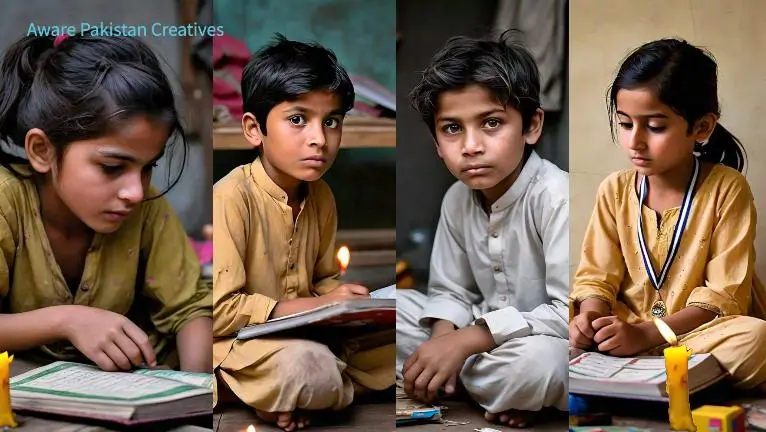Similarly to many other nations, Pakistan is experiencing challenges with child protection and welfare, but with distinct types of concerns. Children’s difficulties in Pakistan are multifaceted and varied, ranging from poverty and lack of access to educational institutions to child labor and outright exploitation. Despite these problems, there is still optimism and a will to establish a better society for young residents. In this post, I will illustrate methods of protecting children and their rights in Pakistan, as well as the hurdles that stand in their way, and I will also offer urgent activities that may be made to get things back on track and secure children’s rights and dignity.
Understanding the Challenges:
Pakistan is home to a vast population of children, the majority of whom live in poverty and face a variety of challenges that limit their quality of life. According to UNICEF, more than 20% of Pakistan’s children participate in child labor, which typically involves risky work situations that expose them to hazardous circumstances and a high rate of injury. Similarly, many of these children do not have the chance to receive a high-quality education, meaning a cycle of poverty and inequality.
Furthermore, the issue of child marriage has become prevalent in the country, with many young females marrying before the age of 18, which destroys their upbringing while also exposing females to major health risks and exacerbating gender inequality.
Furthermore, the presence of child abuse, which includes physical, sexual, and psychological abuse, is a serious problem. Children are mistreated, both extensively and insufficiently, frequently due to stigma, a lack of understanding, or weak institutional systems.
The Role of Government and Civil Society:
Despite Pakistan’s subsequent efforts to enact legislation to protect children’s rights, such as the Juvenile Justice System Ordinance and the National Commission on the Rights of the Child, the implications of these laws are fraught with flaws. To ensure the effectiveness of protection policies and legislation, all governmental agencies, police, and civic organizations must collaborate. Civil society, as an unchanging entity, is active in lobbying for children’s rights and assisting various vulnerable populations. One of the key parties involved in child protection is non-governmental organizations (NGOs) and community groups, which work hard to raise awareness and educate the public about the need for refuge and rehabilitation for abused children. They also push for measures that will effectively address systemic concerns.
Education and Awareness:
Education and awareness raising are critical components of attempts to address child safety problems in Pakistan. Education for children, parents, and communities should be part of the overall strategy. Such material should cover children’s rights, the importance of education, and the consequences of child labor, abuse, and child marriage. To some extent, schools may become safe environments in which children learn about their rights and how to defend themselves against various types of abuse. While media campaigns and community outreach activities can help to change social perceptions of child protection, we must also look into the underlying causes of abuse and neglect. Through raising awareness and developing a society with zero tolerance for child maltreatment and exploitation, Pakistan can build a safer and non-discriminatory society where children will no longer suffer the anguish of child abuse.
Investing in the Future:
The most reasonable option is to invest in children as the future of the country. By prioritizing child safety and wellbeing, the country can harness the force of its kids and transform efforts to eradicate poverty and injustice. The government, civic society, commercial sector, and communities must all work together to achieve this goal.
